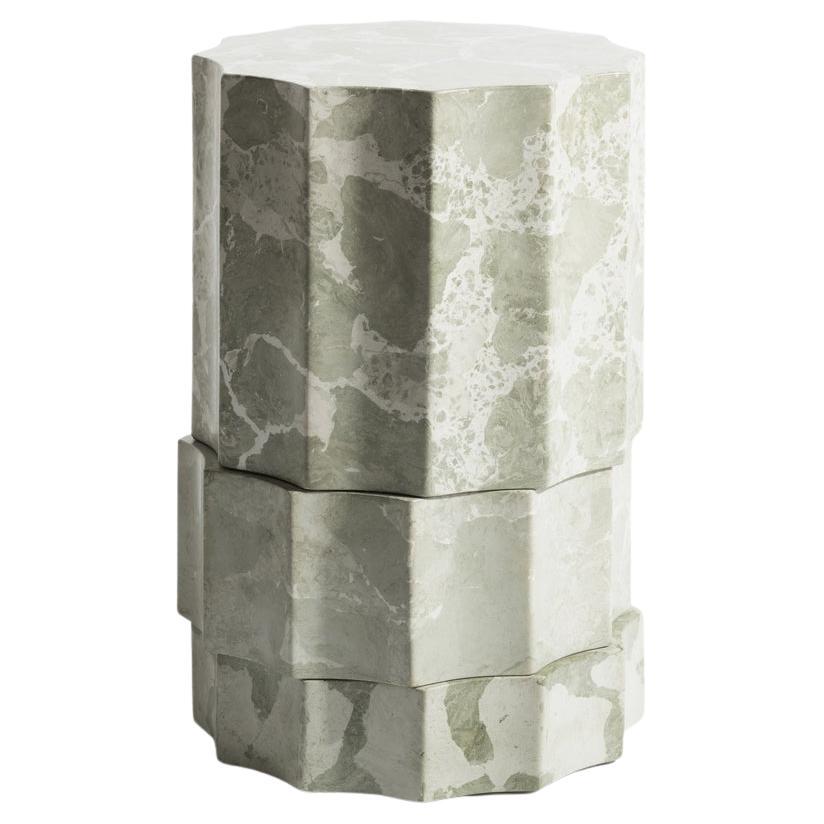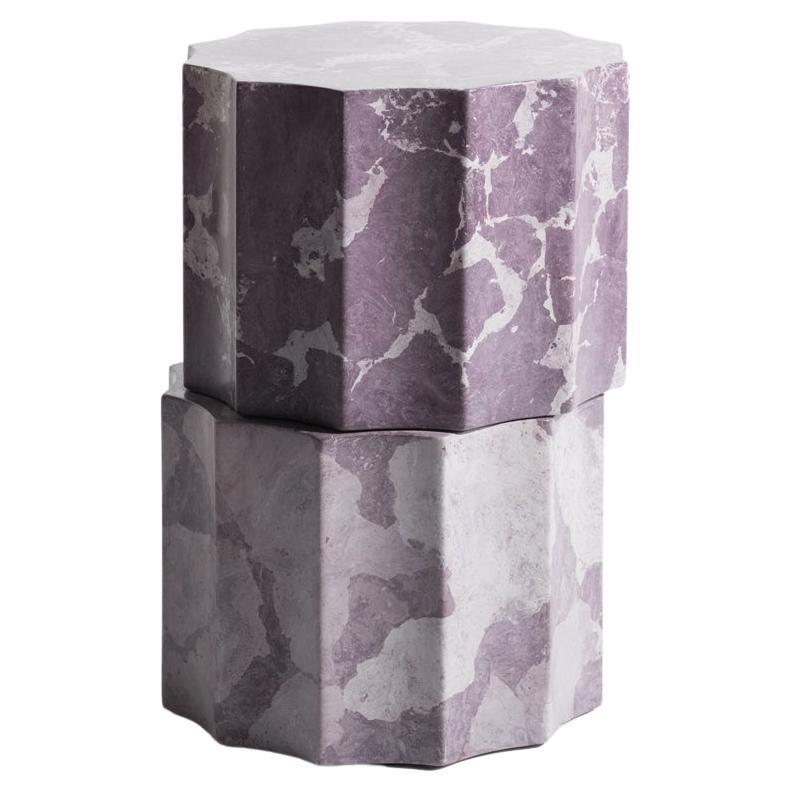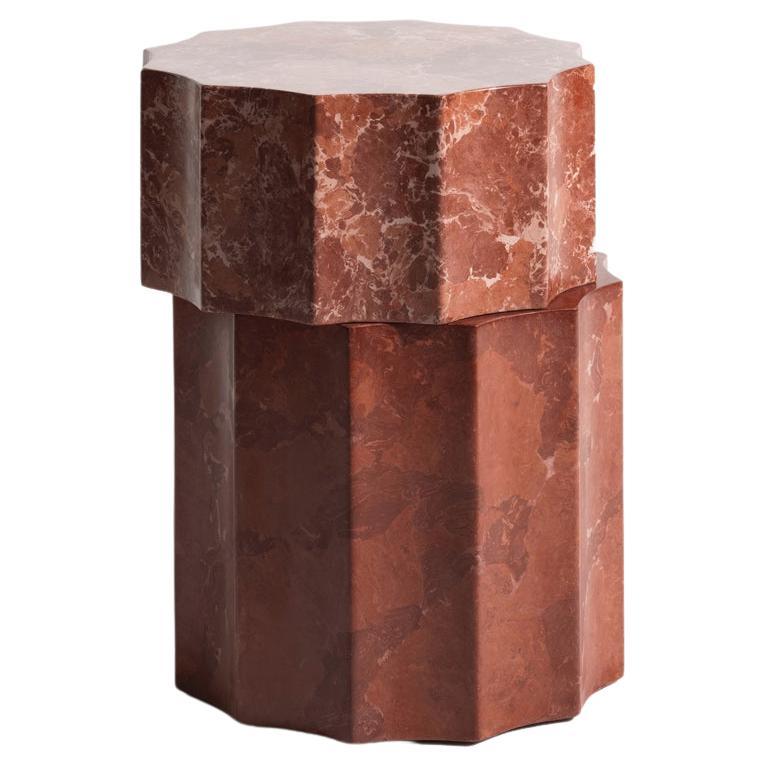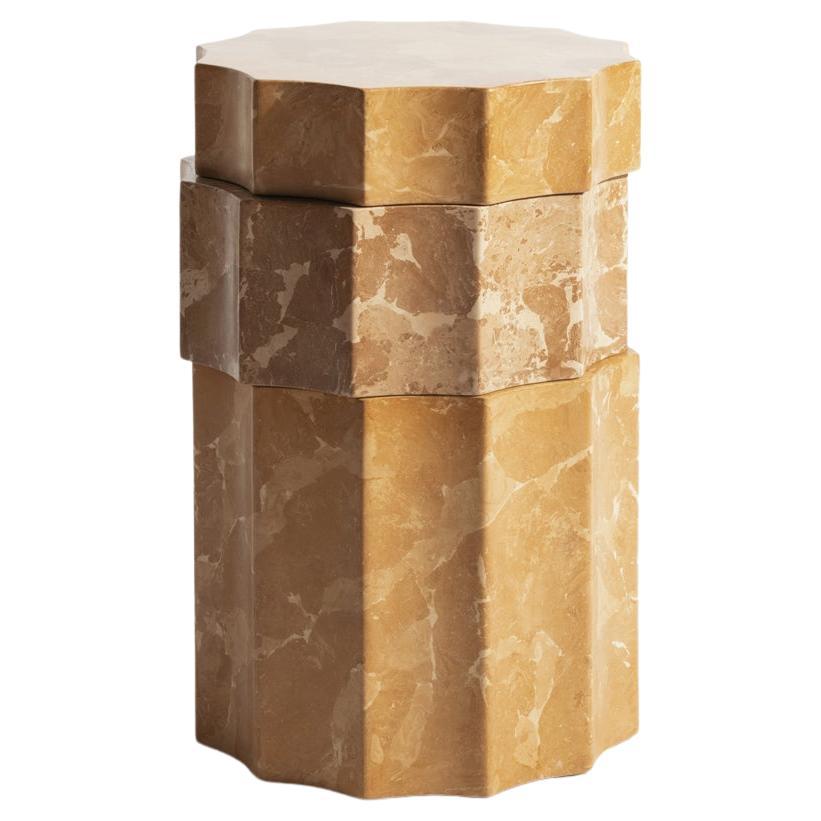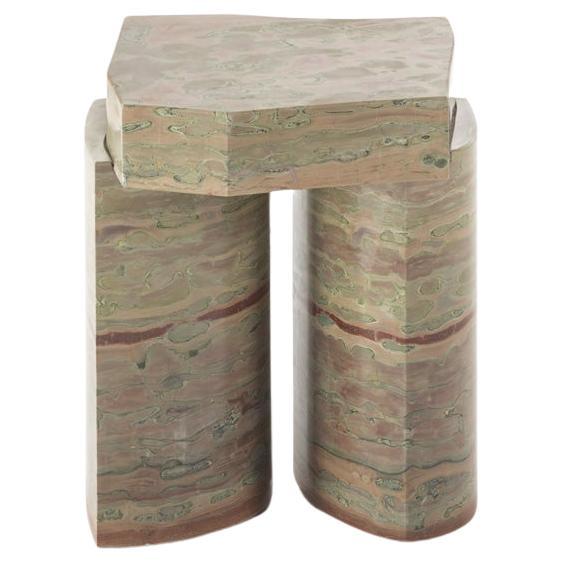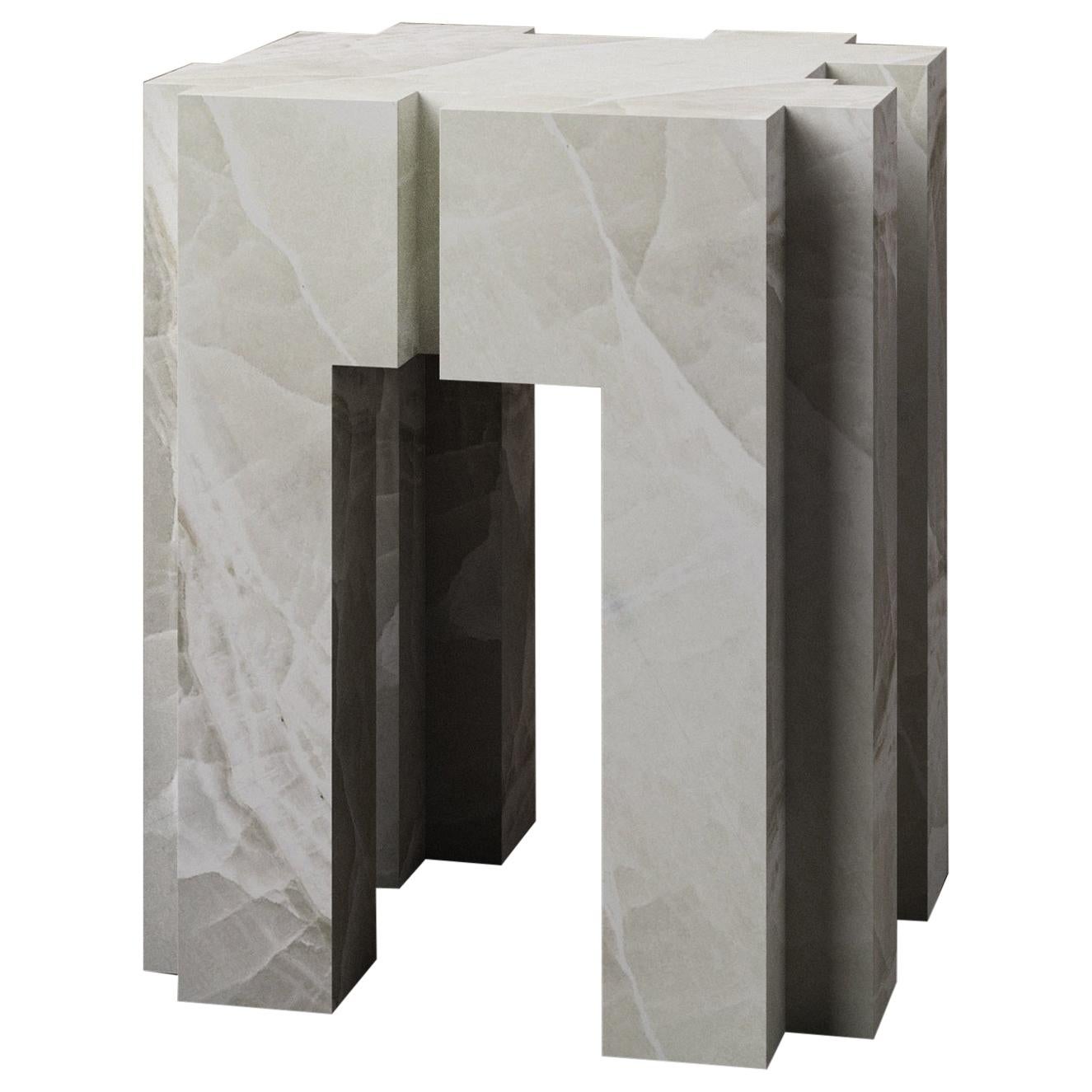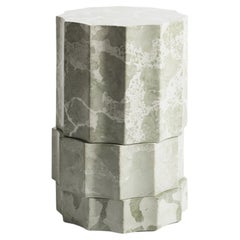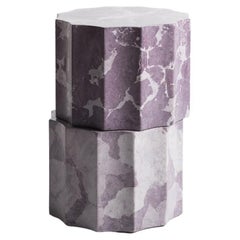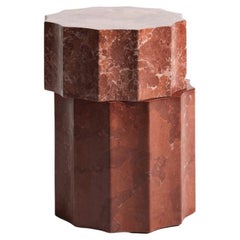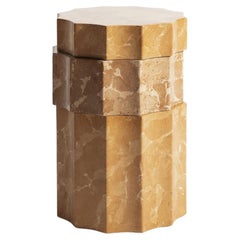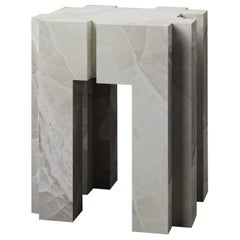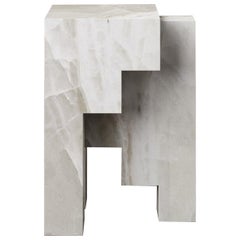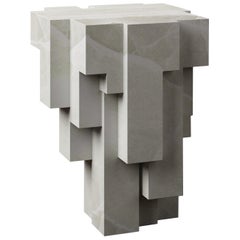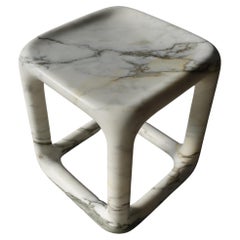Items Similar to Domus Pompeii Efebo Stool by Roberto Sironi
Want more images or videos?
Request additional images or videos from the seller
1 of 8
Domus Pompeii Efebo Stool by Roberto Sironi
$7,183.35
£5,330.08
€6,000
CA$10,032.63
A$10,880.62
CHF 5,714.92
MX$132,164.33
NOK 71,513.14
SEK 67,333.61
DKK 45,690.03
About the Item
Rediscovered in 1748, after being buried for almost two millennia under a blanket of lava and ash following the eruption of Vesuvius, Pompeii redefines our relationship with the past
through its generative potential between reality and imagination.
Defined by Goethe “An incredible place, worthy of peaceful thoughts”, Pompeii has the power to transform inanimate archaeological material into narrative matter, merging past and present in a relationship of reciprocity and interaction.
Exploring the site, today as then, it is possible to admire the interiors decorated with frescoes that reproduce architectural partitions or that tell stories of myths and divinities, in rooms set up with marble elements that the owner used to display his most precious objects.
The Pompeian frescoes were made according to different techniques with colors obtained from earth and minerals such as cinnabar (Pompeian red), ochres (Pompeian yellow), by oxidation processes of metals as in the case of cerulean or by the pulverization of roots and animal bones as in case of greens and blacks.
DOMUS POMPEII is a capsule collection of five side tables made in Marmo di Rima, designed in dialogue with the architecture and chromatic-decorative techniques of Pompeii.
Marmo di Rima is a decorative technique created in Italy in the second half of the 19th century to simulate natural marble through a mixture (stucco) made with alabaster gypsum, water and mineral pigments. A technique in dialogue with that used by the decorators of the time, as Vitruvius describes in his VII book De Architectura, identifying the four different Pompeian styles: Primo Stile was developed through the simulation of architectural elements made of stucco with pigments diluted in water.
The project develops on the theme of the fluted column - one of the characterizing elements of Pompeian architecture - which is broken down and added together in a post-archaeological act in which the applied technique - Marmo di Rima - simulates the marbles used in the interiors of Pompeian Villas, where numerous varieties of marble from North Africa, the Greek Islands and Turkey have been found.
DOMUS POMPEII is designed around the concept of archaeological matter, where architectural, pictorial and material elements of archaeological matrix blend together with the aim of giving shape to the present in an infinite dialogue with the past. The colors, techniques, architectural materials of the Roman Pompeii are reworked and reinterpreted in a metamorphic process that results in the production of imagined archaeological artifacts.
- Creator:Roberto Sironi (Designer)
- Dimensions:Height: 17.72 in (45 cm)Width: 13.78 in (35 cm)Depth: 13 in (33 cm)
- Materials and Techniques:
- Period:
- Date of Manufacture:2022
- Production Type:New & Custom(Limited Edition)
- Estimated Production Time:Available Now
- Condition:
- Seller Location:Pireaus-Athens, GR
- Reference Number:1stDibs: LU1571229435942
Marmo di Rima
About the Seller
1.0
Recognized Seller
These prestigious sellers are industry leaders and represent the highest echelon for item quality and design.
Established in 2011
1stDibs seller since 2015
18 sales on 1stDibs
- ShippingRetrieving quote...Shipping from: Athens, Greece
- Return Policy
Authenticity Guarantee
In the unlikely event there’s an issue with an item’s authenticity, contact us within 1 year for a full refund. DetailsMoney-Back Guarantee
If your item is not as described, is damaged in transit, or does not arrive, contact us within 7 days for a full refund. Details24-Hour Cancellation
You have a 24-hour grace period in which to reconsider your purchase, with no questions asked.Vetted Professional Sellers
Our world-class sellers must adhere to strict standards for service and quality, maintaining the integrity of our listings.Price-Match Guarantee
If you find that a seller listed the same item for a lower price elsewhere, we’ll match it.Trusted Global Delivery
Our best-in-class carrier network provides specialized shipping options worldwide, including custom delivery.More From This Seller
View AllDomus Pompeii Fauno Stool by Roberto Sironi
By Roberto Sironi
Located in Pireaus-Athens, Greece
Rediscovered in 1748, after being buried for almost two millennia under a blanket of lava and ash following the eruption of Vesuvius, Pompeii redefines our relationship with the past
through its generative potential between reality and imagination.
Defined by Goethe “An incredible place, worthy of peaceful thoughts”, Pompeii has the power to transform inanimate archaeological material into narrative matter, merging past and present in a relationship of reciprocity and interaction.
Exploring the site, today as then, it is possible to admire the interiors decorated with frescoes that reproduce architectural partitions or that tell stories of myths and divinities, in rooms set up with marble elements that the owner used to display his most precious objects.
The Pompeian frescoes were made according to different techniques with colors obtained from earth and minerals such as cinnabar (Pompeian red), ochres (Pompeian yellow), by oxidation processes of metals as in the case of cerulean or by the pulverization of roots and animal bones as in case of greens and blacks.
DOMUS POMPEII is a capsule collection of five side...
Category
2010s Side Tables
Materials
Marble
Domus Pompeii Menandro Stool by Roberto Sironi
By Roberto Sironi
Located in Pireaus-Athens, Greece
Rediscovered in 1748, after being buried for almost two millennia under a blanket of lava and ash following the eruption of Vesuvius, Pompeii redefines our relationship with the past
through its generative potential between reality and imagination.
Defined by Goethe “An incredible place, worthy of peaceful thoughts”, Pompeii has the power to transform inanimate archaeological material into narrative matter, merging past and present in a relationship of reciprocity and interaction.
Exploring the site, today as then, it is possible to admire the interiors decorated with frescoes that reproduce architectural partitions or that tell stories of myths and divinities, in rooms set up with marble elements that the owner used to display his most precious objects.
The Pompeian frescoes were made according to different techniques with colors obtained from earth and minerals such as cinnabar (Pompeian red), ochres (Pompeian yellow), by oxidation processes of metals as in the case of cerulean or by the pulverization of roots and animal bones as in case of greens and blacks.
DOMUS POMPEII is a capsule collection of five side...
Category
2010s Side Tables
Materials
Marble
Domus Pompeii Vettii Stool by Roberto Sironi
By Roberto Sironi
Located in Pireaus-Athens, Greece
Rediscovered in 1748, after being buried for almost two millennia under a blanket of lava and ash following the eruption of Vesuvius, Pompeii redefines our relationship with the past
through its generative potential between reality and imagination.
Defined by Goethe “An incredible place, worthy of peaceful thoughts”, Pompeii has the power to transform inanimate archaeological material into narrative matter, merging past and present in a relationship of reciprocity and interaction.
Exploring the site, today as then, it is possible to admire the interiors decorated with frescoes that reproduce architectural partitions or that tell stories of myths and divinities, in rooms set up with marble elements that the owner used to display his most precious objects.
The Pompeian frescoes were made according to different techniques with colors obtained from earth and minerals such as cinnabar (Pompeian red), ochres (Pompeian yellow), by oxidation processes of metals as in the case of cerulean or by the pulverization of roots and animal bones as in case of greens and blacks.
DOMUS POMPEII is a capsule collection of five side...
Category
2010s Stools
Materials
Marble
Domus Pompeii Dioscuri Stool by Roberto Sironi
By Roberto Sironi
Located in Pireaus-Athens, Greece
Rediscovered in 1748, after being buried for almost two millennia under a blanket of lava and ash following the eruption of Vesuvius, Pompeii redefines our relationship with the past
through its generative potential between reality and imagination.
Defined by Goethe “An incredible place, worthy of peaceful thoughts”, Pompeii has the power to transform inanimate archaeological material into narrative matter, merging past and present in a relationship of reciprocity and interaction.
Exploring the site, today as then, it is possible to admire the interiors decorated with frescoes that reproduce architectural partitions or that tell stories of myths and divinities, in rooms set up with marble elements that the owner used to display his most precious objects.
The Pompeian frescoes were made according to different techniques with colors obtained from earth and minerals such as cinnabar (Pompeian red), ochres (Pompeian yellow), by oxidation processes of metals as in the case of cerulean or by the pulverization of roots and animal bones as in case of greens and blacks.
DOMUS POMPEII is a capsule collection of five side...
Category
2010s Side Tables
Materials
Marble
Aphanès marble Side Table by Roberto Sironi
By Roberto Sironi
Located in Pireaus-Athens, Greece
Custom works and dimensions upon request.
Category
2010s Side Tables
Materials
Marble
$23,705 / item
Aphanès marble Side Table
By Roberto Sironi
Located in Pireaus-Athens, Greece
Custom works and dimensions upon request.
Category
2010s Side Tables
Materials
Marble
$23,705 / item
You May Also Like
Contemporary Geometric White Onyx No.1 Sculpted Stool by Pietro Franceschini
Located in Geneve, CH
Deseo no.1 sculpted stool by Pietro Franceschini
Materials: White onyx
Dimensions: W 36cm, L 35cm, H 45cm
Origin: Italy (carrara)
Available in other marbles.
Pietro Francesc...
Category
2010s Italian Modern Side Tables
Materials
Onyx
Contemporary Geometric White Onyx No.2 Sculpted Stool by Pietro Franceschini
Located in Geneve, CH
Deseo No.2 sculpted stool by Pietro Franceschini
Sold exclusively by Galerie Philia
Materials: White onyx
Dimensions: W 36cm, L 35cm, H 45cm
Origin: Italy (Carrara)
Manufacturer...
Category
2010s Italian Modern Side Tables
Materials
Onyx
Contemporary Geometric White Onyx No.3 Sculpted Stool by Pietro Franceschini
Located in Geneve, CH
Deseo No.3 sculpted side stool by Pietro Franceschini
Sold exclusively by Galerie Philia
Materials: White Onyx
Dimensions: W 36cm, L 35cm, H 45cm
Origin: Italy (Carrara)
Manufac...
Category
2010s Italian Modern Side Tables
Materials
Onyx
"NOLAN" Stool by Stefano Bigi (Marble, Calacatta, Italy)
By Stefano Bigi
Located in Pastrengo, IT
The Nolan Stool is a sculptural creation that transforms raw marble into a poetic work of art. Emerging from stone like a vision shaped by an ancient sculptor’s hand, its fluid curve...
Category
2010s Italian Minimalist Stools
Materials
Marble
Stool Marble Francesco Balzano for Giobagnara Ossicle Marble Stool
By Francesco Balzano
Located in New York, NY
Ossicle Marble Stool -- Francesco Balzano x Giobagnara
Available in a marble finish.
For simple and sophisticated leather and marble products, look no further than the Francesco Balzano line. Born and raised in Paris, Francesco Balzano studied interior design and architecture before opening his own studio to design custom and limited editions of furniture pieces for galleries around the world. The influence of Venice, Rome, and Capri are omnipresent in many of Balzano’s products, which fashion simple elegance out of a carefully selected range of leather and marble colors and finishes. The monolithic seats, benches, and tables that comprise Balzano’s ossicle collection strike the perfect balance between organic and pure geometric shapes, thus offering contemporary luxury elevated by minimalism. The singularity of each design conceived as a sculptural piece is bound to stand the test of time.
For nearly twenty years, the Giobagnara brand has combined traditional know-how and leading-edge technology to produce elegance of the highest standard. With luxurious creations available in a unique and virtually limitless color palette of leathers and suede, Giobagnara now boasts one of the most comprehensive offers of leather home accessories...
Category
21st Century and Contemporary Italian Stools
Materials
Marble
Berlin Side Table by Greg Natale
By Greg Natale
Located in Sydney,, NSW
With a nod to the postmodern structures of Ettore Sottsass and a presence all its own, the Berlin side table is a striking study in monochromes and the natural beauty of marble.
M...
Category
21st Century and Contemporary Unknown Modern Side Tables
Materials
Marble
More Ways To Browse
Antique Cane Side Table
Antique Chinese Marble Top Carved Rosewood Table
Antique Turkish Table
Arabic Wood
Birds Eye Burl
Black Drink Table Pair
Brass Bed Side Table
Brass Etagere Side Table
Burl Cube Table
Damascus Furniture
Eileen Gray Chrome Table
French Iron Drink Table
French Kidney Shape Side Table
French Table Apron
Handmade Walnut Side Table
Hexagon Table Antique
Illuminated Side Tables
Indian Folding Table
